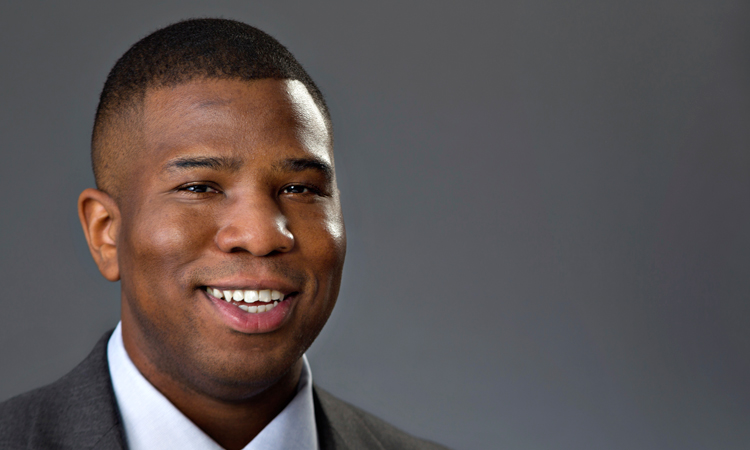Silent Victims of HIV/AIDS
PhD student prioritizes the health of gay, bisexual black men
Jordan White, MS, can’t ignore the exacerbated disparities impacting black men who have sex with men (MSM) in Baltimore—and he’s working to ensure that local communities don’t either.
Among American blacks—the racial group most affected by HIV/AIDS nationwide—about half of gay men are projected to be diagnosed in their lifetime, the CDC reports. And, while exceptional HIV/AIDS treatment is readily available at Johns Hopkins Hospital—where HIV-positive organ transplants are set to begin soon—the city of Baltimore struggles with one of the highest HIV/AIDS death rates in the country.
“This is an issue of social justice, and is exactly what we should be talking about during Black History Month—even though it’s not easy to talk about a public health issue killing us in private,” says White, a PhD student who identifies with black MSM.
Too often, stigma stops individuals from seeking education, treatment and care, he explains: “We have to be really mindful of rhetoric we hear that’s hateful—that puts people down— it’s powerful and often can silently kill folks.”
When White applied to the Bloomberg School PhD program in Social & Behavioral Sciences, the Department of Health, Behavior and Society (HBS) helped him secure a training grant through the Drug Dependence Epidemiology Training (DDET) Program to support his work.
Guided by advisor and HBS chair David Holtgrave, PhD, and co-advisor Catherine Maulsby, PhD, White is talking with leaders of community-based organizations about implementing the national HIV/AIDS strategy in Baltimore. Together, they are mapping out evidence-based activities, like social marketing campaigns, that support prevention in the city.
So far, the efforts of the Community Participatory Advisory Board for the Center for AIDS Research, which Holtgrave co-directs and where White is a staffer, have given rise to Sankofa, an event that highlights the need for support and ongoing conversations about the health of black gay and bisexual men. The third Sankofa conference is scheduled for late April 2016.“The Bloomberg School has pushed me to think about social and structural issues like stigma, housing and employment in more critical ways,” White says. “It’s great to be an activist and speak out on these issues, but we also need to come to the table with solutions.”
—Salma Warshanna-Sparklin

